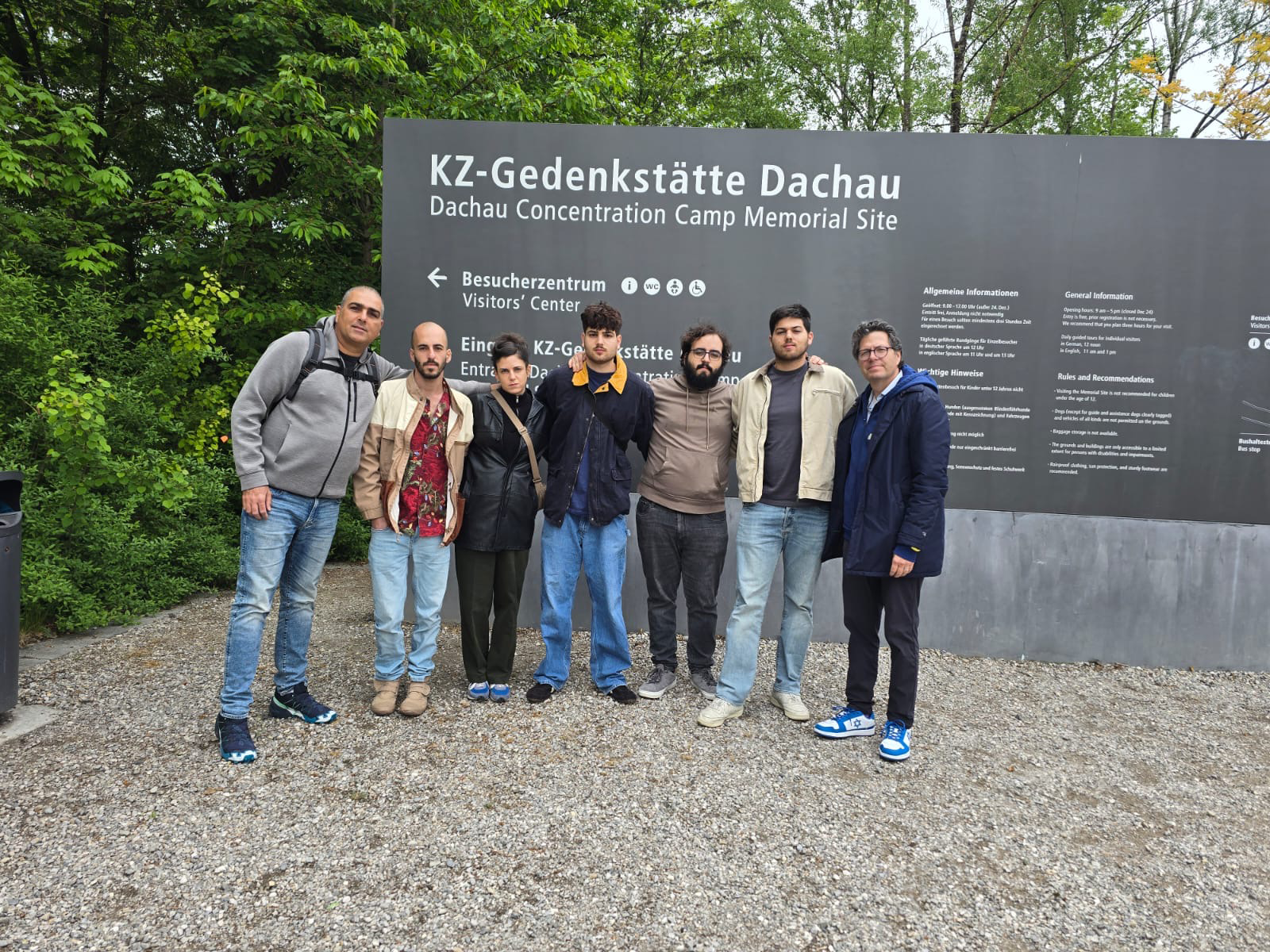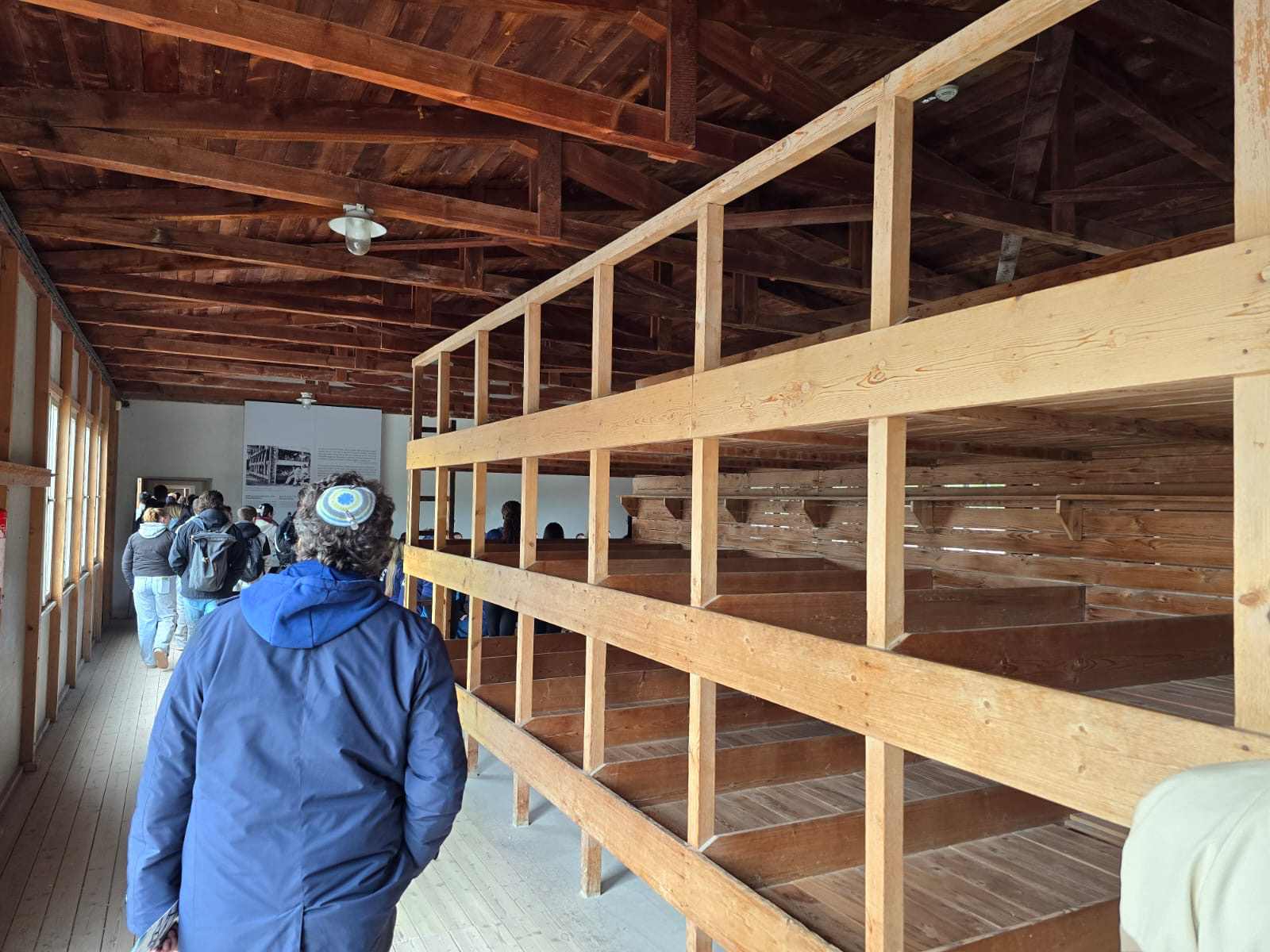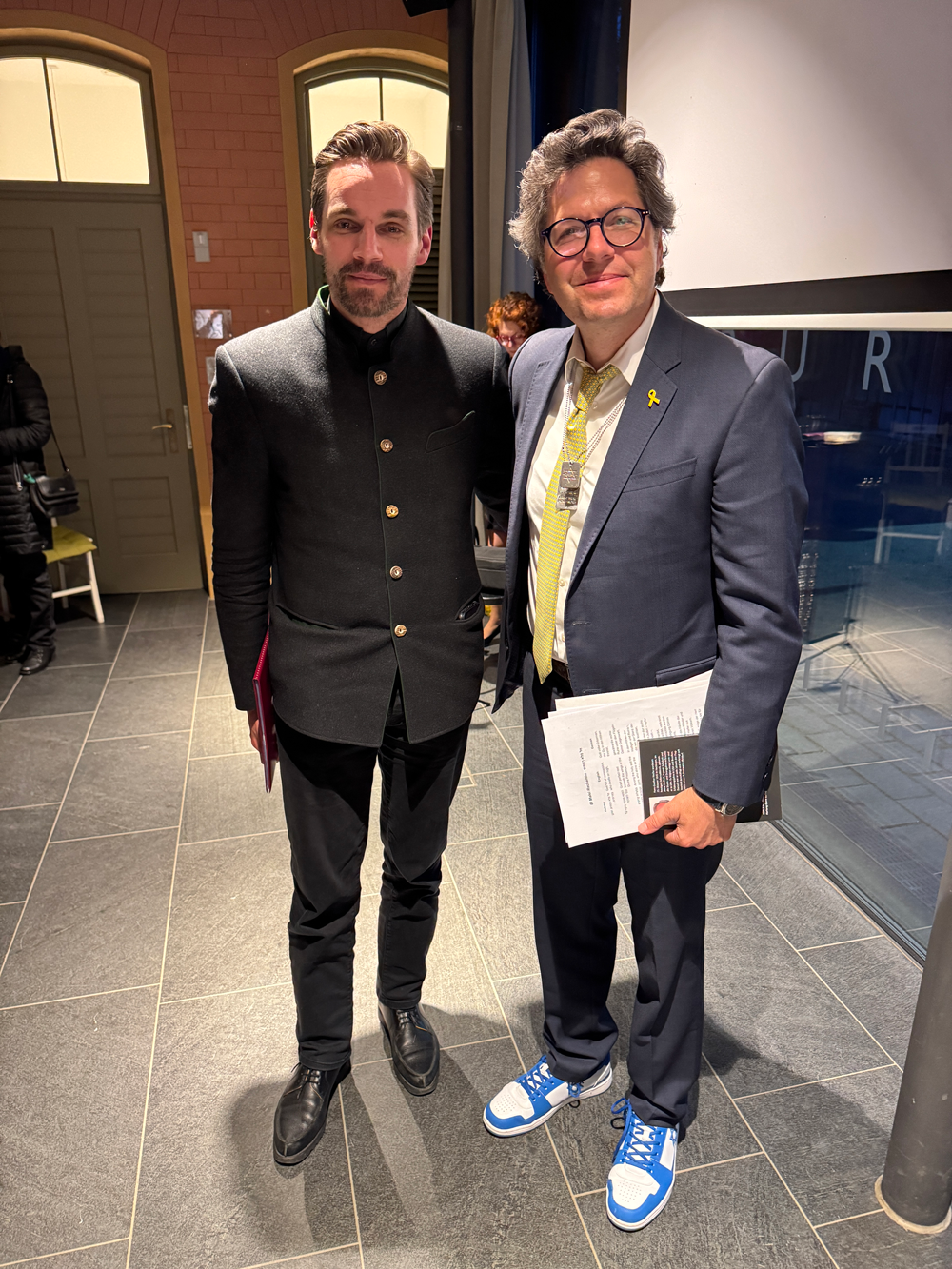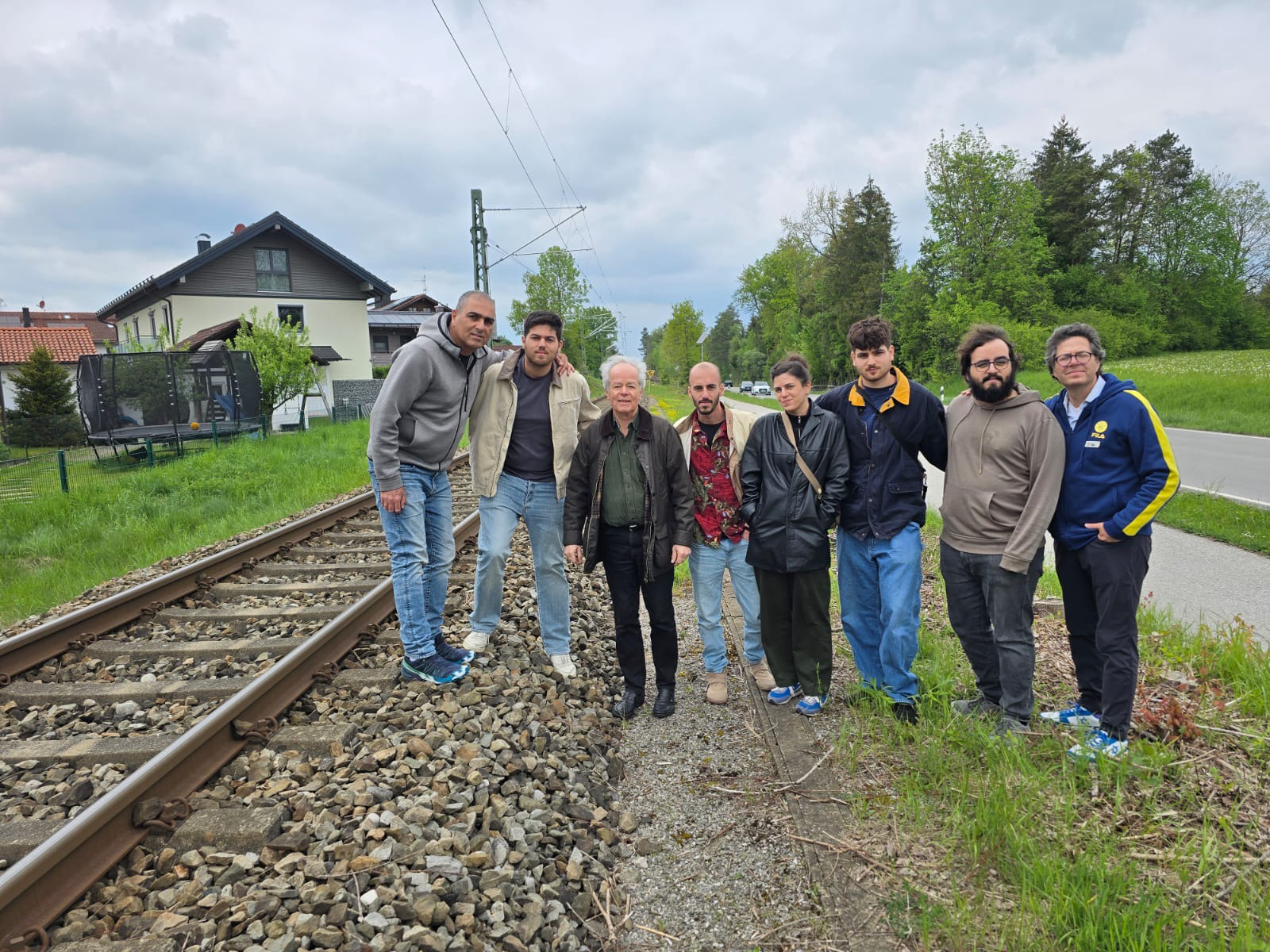Almost thirty-three years ago, I moved to Israel to begin rabbinical school. Just before I left, my mother gave me the name of a distant cousin, Mnashe, and encouraged me to contact him once I arrived. A few months later—after some gentle prodding—I finally visited him and his family. At the end of the evening, he handed me a gift: a Torah commentary written by his grandfather, Rabbi Eliezer Davidovits, who was murdered in the Shoah.
Until then, this chapter of my family’s past was unfamiliar to me. I came to understand what the book represented and translated it into English for my rabbinic thesis. Since then, I’ve shared Rabbi Eliezer’s insights in sermons; his teachings continue to shape my rabbinate.
Learning about Mnashe’s journey has touched me deeply. In one of our final conversations, he told me how, in June 1944, the Jews of his town were deported to Auschwitz. His mother, three sisters, and younger brother were murdered. Mnashe was selected for labor and spent eleven harrowing months as a slave laborer at Allach, a subcamp of Dachau.
In late April 1945, as Allied forces approached, the Nazis—desperate to hide the evidence of their crimes—sent thousands on death marches and crammed others into cattle cars bound for Austria. Mnashe was among them, aboard one that came to a halt on April 30 in the small Bavarian town of Iffeldorf—just as American troops arrived and liberated the prisoners.
Last week, I traveled to Germany with Mnashe’s sons and grandchildren, at the invitation of Hans Hoche, a non-Jewish German born in October 1945. For the past two decades, Hans has devoted himself to researching the liberation of that train. He invited us to Iffeldorf to mark the 80th anniversary of this remarkable event.

Rabbi Yoshi and the Davidovits family at Dachau
It was an intensely meaningful journey. Together, we visited Dachau, walking through the museum and memorial, past the barracks and crematorium. In Allach, we found a modest plaque that read simply: “In remembrance of the many thousands of prisoners of the Dachau subcamp Allach-Karlsfeld, who had to work in arms production from March 19, 1943, until liberation on April 30, 1945.”
In Iffeldorf, Hans showed us the streets where my cousin lived during the first few weeks after his liberation. He pointed out the bakery, founded in 1877, which—under orders from the American Army—supplied bread to the 2,400 liberated Jewish prisoners. A soup kitchen was established nearby, and local farmhouses were requisitioned and converted into dormitories.

Rabbi Yoshi visiting Dachau
That night, we were honored guests at a ceremony commemorating Victory in Europe Day—May 8, 1945. I chanted El Malei Rachamim, asking for God’s mercy on the souls of the six million who were murdered. Community leaders, including local clergy, offered prayers and reflections. Hans then delivered a meticulously researched presentation on the transport that arrived in their village 80 years ago, carrying men, women, and children who were barely alive. It was a profoundly moving experience—a rare moment of shared memory, grief, and hope.
At the heart of this journey is the value of zachor (זָכוֹר)—remembering. In Judaism, remembering is sacred—it’s not just tradition; it’s a mitzvah. We are commanded to remember—not to dwell in the past, but to use it to shape the future with clarity and compassion.

Rabbi Yoshi and Father Konrad Bestle
Why is remembering a mitzvah? Because it teaches us who we are, where we came from, and where we might go. It connects us to others—our families, our people, and, as I experienced in Iffeldorf, to our shared humanity. And it binds us across time. Rabbi Eliezer was murdered twenty-seven years before I was born, but through his words, I know him. My children know him. God willing, future generations will too.
What we choose to remember reflects our values. Hans helped a village remember—and inspired them to embrace a more compassionate, inclusive vision for the future.
Make no mistake: memory alone cannot prevent hatred or xenophobia from returning. But I believe it makes their return less likely. When we remember intentionally, deliberately, and thoughtfully, we make meaning—and we change the world for the better.
Most of all, this journey taught me that remembering isn’t really about the past. It’s about what we do with it now. It’s about how we live today. It’s an urgent mitzvah—eternally relevant.

The exact spot where the train in Iffeldorf was liberated in April, 1945
יְהִי זִכְרָם — וְזִכְרֵנוּ — בָּרוּךְ
Yehi Zichram — v’Zichreinu — Baruch
May their memory—and ours—be a blessing.
